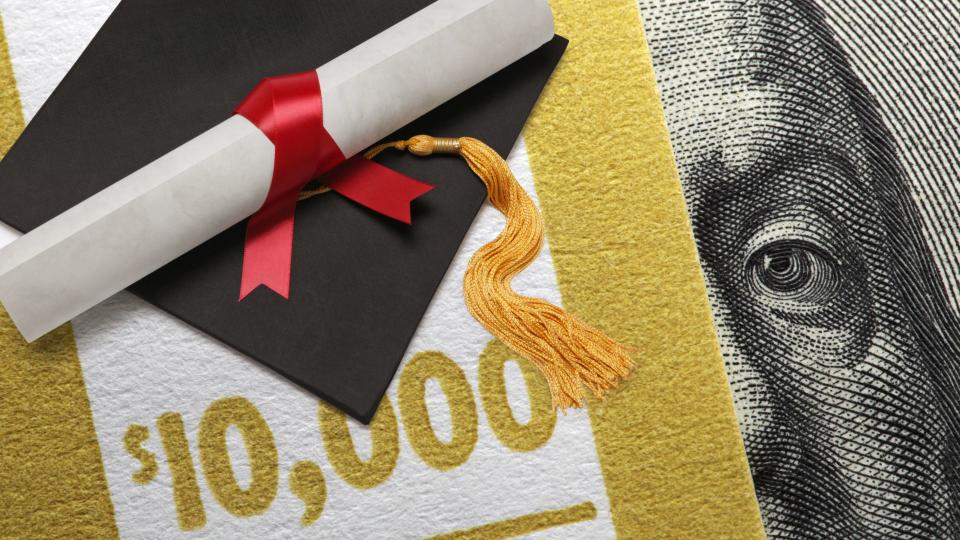If you have the funds, making extra payments on student loans is always a smart financial move to consider, particularly for high-interest debt. However, it’s crucial to assess your overall financial picture, prioritize high-interest debt and balance your financial goals before pushing extra funds into loan payments.
These 10 Colleges Are Working To Eliminate Student Loans From the Equation: How It Succeeds in Keeping Students Out of Debt
Learn: What To Do If You Owe Back Taxes to the IRS
Whether you should make extra payments on your student loans depends on various factors. According to the Student Loan Sherpa, while you might think that student loan debt is important to pay off as quickly as possible, you should be prioritizing other debts first. With favorable loan forgiveness and repayment options available, paying off federal student loans has become less urgent.
“Most borrowers will find that another priority takes precedence over eliminating their student debt,” says the group of CFA and CFP professionals on the Student Loan Sherpa site. “Additionally, with programs like income-driven repayment and student loan forgiveness, moving student loan elimination down the list of financial goals can make a lot of sense.”
Here are some considerations you should look at before paying off your federal student loans:
Sponsored: New Chase checking customers enjoy a $200 bonus when you open a Chase Total Checking® account and set up direct deposit.
Emergency Funds First
Before making extra loan payments, ensure you have an emergency fund in place. It’s important to have savings to cover unexpected expenses, so you don’t have to rely on credit in case of emergencies. Not paying your student loans isn’t an option, but making the minimum payment while you build an emergency fund should be your goal.
Eliminate High-Interest Debts
A quick budget will tell you where you’re spending too much money, and chances are, they are high-interest debts. High-interest debts — credit cards, private student loans and personal loans, especially payday loans — should generally be prioritized over extra payments toward student loans.
Saving to Buy a Home
Many graduates are hindered by the dual financial obstacles of paying off their student loans while they attempt to buy their first home. Saving for a down payment on a mortgage is an important target and can be prioritized over student loans depending on your overall financial situation and goals.
I’m a Financial Expert With Student Loans: Here’s My Plan To Tackle Repayment
Employment and Retirement Goals
Often, the last thing on a recent graduate’s mind is putting money toward their current job or retirement savings. But it’s never too early to plan for the future. You owe it to yourself to contribute as much as you can to any 401(k) employer-sponsored plans. It is free money, after all.
As far as retirement is concerned, the Social Security trust funds, which approximately 67 million Americans rely on for benefits, are scheduled to be depleted in 2034. At that time, 80% of scheduled benefits will be payable unless Congress takes action. So, setting aside money when you retire could be more critical than paying off student debt at this moment in time.
While millions of those holding federal student loans would love to get their accumulated debt to zero as quickly as possible, you have to consider your overall financial objectives. If you have other high-priority financial goals, such as building an emergency fund, eliminating high-interest loans, saving for retirement and contributing to an employer-sponsored retirement plan with a matching contribution or a mortgage, it might make sense to allocate funds to those goals first.
More From GOBankingRates
This article originally appeared on GOBankingRates.com: Making Extra Student Loan Payments Could Be a Mistake — Here’s Why
Credit: Source link




